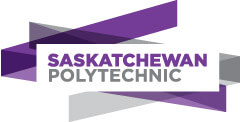About Fabricator - Welder Certificate in Saskatchewan Polytechnic
Program Overview
Metal fabricator-welders are in high demand—in the oil patch, mining, manufacturing and construction. It’s a trade that requires a high level of skill and a comprehensive knowledge of industrial welding and joining processes. The payoff is high wages and good career mobility.
It's a great way to jump into the workforce … in either the welding or steel fabrication trade.
Fabricator-Welder is a one-year, dual certificate program offered at Regina and Saskatoon campuses. You’ll learn from experienced instructors how to interpret drawings and use different welding processes and metal forming machinery. Working in Saskatchewan Polytechnic’s well-equipped shops, you’ll be trained in:
- benchwork and trade safety
- communications, trade math and print reading
- layout, template development and fitting
- gas metal arc and gas tungsten arc welding
- oxy-fuel processes and plasma arc cutting
- rigging and electric overhead crane operation
- shielded metal arc welding
- shop management
You’ll also fabricate several projects, complete your Canadian Welding Bureau (CWB) welder qualification tests and participate in a one-week work experience.
Apprenticeship Credit
With this Saskatchewan Polytechnic credential, you may be eligible for credit towards apprenticeship training. To learn more, contact the Saskatchewan Apprenticeship and Trade Certification Commission (SATCC).
Career and Salary Information
Your Career
As a graduate of the Fabricator-Welder program, you can work in the custom fabrication, construction, mass production, maintenance, petroleum, mining, forestry and railway industries. You can work in either welding or steel fabrication. Steel fabricators work in steel fabrication plants and heavy machinery manufacturing companies.
Welders work for companies that manufacture structural steel plate work, boilers, heavy machinery and other metal products, and for welding contractors and welding shops. Once you gain experience and skills, you can also contract yourself out or start your own business.
Academic qualification equivalents:
- Secondary School Diploma or equivalent, include one English, Grade 12 (ENG4C or ENG4U), minimum 60%
English language requirements (one of the below):
- IELTS : Overall minimum score of Band 6.5 with a minimum score of 5.0 in each component.
- TOEFL : An overall minimum score of 81 on the Internet-based Test of English
- PTE : A minimum score of 63 with minimum component scores of 50.
Saskatchewan Polytechnic Highlights
| Type |
Public |
| Campus Setting |
Urban |
| Application mode |
Online and Paper mode available |
| Graduation rate |
62% |
| Acceptance rate |
96% |
| Number of Students |
16,008 |
| Overall cost of living |
14,762 CAD |
| Academic calendar |
Semester based |
| % of International students |
6% |
| Number of campuses |
4 |
| Medium of instructions |
English |
| Undergraduate Tuition fee |
14,044 CAD |
| Postgraduate Tuition fee |
16,426 CAD |
| Cost of living |
694 -1147 CAD per month |
Saskatchewan Polytechnic First-Year Tuition Fees And Living Expenses For International Students
Over the course of one academic year, the following graph displays tuition and living expense estimates in Canadian currency for one full-time international undergraduate student. Please bear in mind that these are only estimates; actual pricing will vary depending on your needs and preferences. Other factors to consider include currency changes, visa and study authorization fees, and vacations back home.
- For international students, the overall fees will range from:-
| Particulars |
Amount |
| Administrative fees |
50.00 to 150.00 CAD |
| Application fees |
150 CAD |
| Student association fee |
95.00 to 445.00 CAD |
| Non-refundable fee at the start) |
1,000 CAD |
| Tuition fee range |
6,195 to 18,089 CAD |
| Laboratory fee |
100.00 to 409.00 CAD with no fees for
some courses which do not have a lab service. |
| Books and Supplies |
200 to 3,725 CAD |
| Technology fee |
50 to 146 CAD |
- For a student of Saskatchewan Polytechnic the required financials (Cost of Attendance) can be:-
| Description of Financials |
Amount in CAD |
| Average cost of tuition |
11245.77 CAD |
| Cost of living |
10799.39 CAD |
| Application fee |
150 CAD |
| Estimated total (per year) |
22,195.16 CAD |
